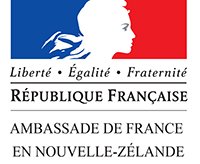Revista de Antropofagia. Image courtesy of the artist.
Tupi and not Tupi invited guests to enter a performative web of exchanges set at a dinner table, focusing on the notion of ‘cultural anthropophagy’.
Chabanon’s research draws from the Antropofagia movement, initiated in 1920’s Brazil by poet and modernist Oswald de Andrade. “Only anthropophagy is uniting us […] Tupi or not Tupi, that is the question”. Referring to ontological perspectives of the Tupi (the largest indigenous group in Brazil) Chabanon launches a poetic and aesthetic investigation into cultural preservation through embodying alternative perspectives and ways of existing.
“Instead of adhering to one pacified, collective ‘body’, ’Tupi and not Tupi’ suggests the presence of multiplied subjectivities that are shaped by an openness to the outside. These subjectivities don’t act as mirrors but as destinations. Connection becomes a journey of resistance across physical and mental boundaries, through exposing oneself to the metaphysics of other beings”. Chabanon finds echos of her current research in Aotearoa New Zealand’s colonial history, the Arts and Crafts movement and intellectual property rights.
This event was the first iteration of a series of dinners, followed by two exhibitions of sculptural works, introducing Chabanon’s residency project through especially created recipes, local and mostly organic ingredients, handmade ceramic tableware and collaborative elements.
ÈVE CHABANON’S RESIDENCY IS SUPPORTED BY THE FRENCH EMBASSY IN
NEW ZEALAND.
